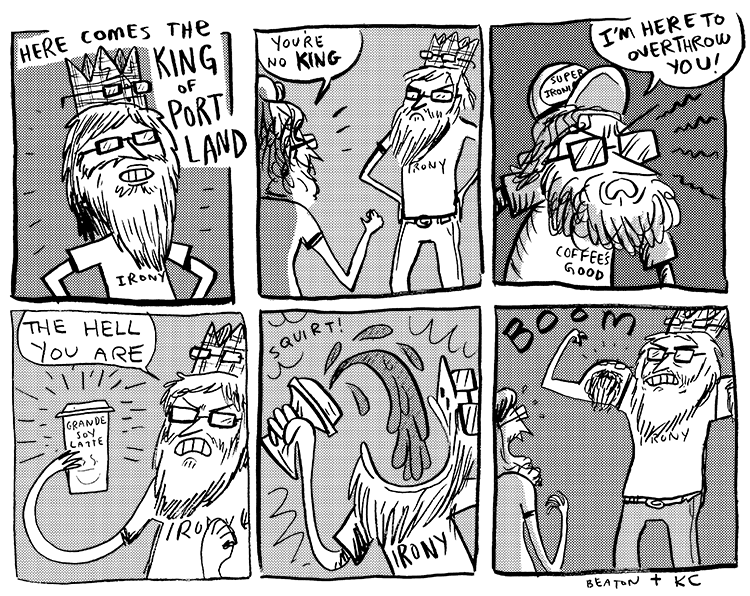Britons have a reputation for being polite, proper, sophisticated and have a talent for standing patiently in queues. The negative end of this stereotype portrays them as being stiff, stuck up, snobbish, prudent, pompous, unemotional, bombastic, imperialistic, phlegmatic and obsessed with class and social status. Partly true, in the sense that they may not be as instantly outgoing or comfortable with expressing emotion as some other nationalities.
--->>>Patience is a virtue and I am one for my manners. It's also true that the members of my family that I'm familiar with tend to guard their emotions. I am no exception.
Pink Floyd: "Hanging on in quiet desperation is the English way."
In League of Extraordinary Gentlemen, Vol. II, Alan Quartermain tells Nemo that "pretending everything is tickety-boo is the English national past-time."
From Doctor Who: "Well, she's British and moneyed. That's what they do. They carry on."
"I'm British; I know how to queue." - Douglas Adams makes several references to no one being better at queuing than the British.
--->>>I'd probably agree with these, too.
The Englishman with the Stiff Upper Lip and pompous, self-important behaviour is often cast as aviator, sailor, nanny, military commander, colonial, gardener , butler, servant or someone from the upperclass. (See British Stuffiness)
British accents are often used to provide people with a witty, sophisticated outlook (see I Am Very British and Deadpan Snarkers) This can be the charming, witty, intellectual male Brit (James Bond, John Steed, Sherlock Holmes) or the young and sexy English Rose type woman (Emma Peel and various Bond Girl s). Characters in historical costume dramas often have British accents, even if the setting has nothing to do with England. And upper-class characters and movie villains are usually represented as The Mean Brit or Evil Brit. Too often they are depicted as eloquent snobs who are in the end humiliated by someone who is more egalitarian.
In videogames, English female characters are often amongst the most fanservicey and portrayed as steely, no-nonsense femme fatales. Examples include Cammy from Street Fighter, Ivy from the Soul Series, Christie from Dead or Alive and of course, arguably the number one all-time videogame Ms fanservice, Lara Croft.
--->>> These are fairly inaccurate for the most part. At least where I live anyway.
In many countries, especially on the European continent, they are seen as having awful cuisine, something that has been spoofed in ?Asterix in Britain?.
In the United States English people are often depicted as having bad teeth (for instance in the The Simpsons episode ?Last Exit to Springfield?, the Family Guy episode ?One If by Clam, Two If by Sea? and the film ?Austin Powers: International Man of Mystery?. [http://www.guardian.co.uk/notesandqueries/query/0,5753,-22429,00.html "A staple of American humor about the UK is the population's bad teeth."]
The Quintessential British Gentleman is dressed in bowler hat, black suit, carrying an umbrella and interrupts everything for the sake of having his tea time (See Spot Of Tea ) In American movies he usually speaks Cockney slang like ?Hello governor!? or other random English Phrases like ?I say? or ?Jolly what?.
--->>> Outdated stereotypes played mainly for humour. Untrue today.
The English are often called "eccentric" and many British sitcoms and sketches showcase strange, daft characters whose behaviour is very unusual. Other, more "normal" characters will react with calm, dry humor and/or witty remarks about their behaviour.
--->>> I'll be the first to admit I'm very eccentric. It's all in the detail. Also, sarcasm and satire are the staple of my conversations. Even our tramps are eccentric. There used to be one that lived in a bus stop near my school and played golf.
The usual explanation for the "British eccentric behaviour" is that they have lived for centuries on an isolated island, separated from the rest of the European continent, which caused them to act different from other Europeans.
Their stubbornness to join or support initiatives of the European Union has also been associated with their eccentricity or desire to be "different from the others for the sake of being different."
Which brings us to the world famous British Humour: the British are not to afraid of laughing with themselves. Most British comedy pokes fun at the class system and the typical eccentric Englishman. René Goscinny and Albert Uderzo claimed that when they satirized other nationalities in Asterix each country would always complain about the way they were portrayed in the comic strip. Usually because they didn't understand the way they were depicted. According to Goscinny and Uderzo the only people that never made any trouble about the way they were spoofed were the Britons.
Even Britons acknowledge the stereotype of drunken hooligans abroad as an unfortunate Truth in Television.
--->>> Absolutely true. Everyone I've met and know of can easily laugh at themselves. Besides I've seen that, usually, if you try to return the humour or show annoyance it'll only make them laugh harder.


